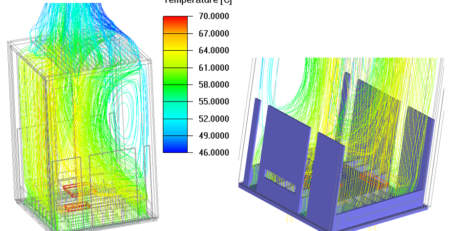EV Thermal Management: Unveiling the Companies Shaping the Future of EV Cooling
admin2023-11-28T16:25:09+00:00The automotive industry continues to be a hotbed of patent innovation. Activity in electric vehicle (EV) integrated thermal management is driven by battery efficiency, fast charging mechanism, artificial intelligence (AI), and the growing importance of technologies such as integrated thermal management modules (iTMM) and two-phase cooling systems. In the last three years alone, there have been over 1.7 million patents filed and granted in the automotive industry, according to GlobalData’s report on Electric vehicles in automotive: EV integrated Thermal management
EV Integrated Thermal Management: A Key Innovation Driving the Future of Electric Vehicles
The automotive industry is undergoing a rapid transformation driven by a number of factors, including environmental concerns, consumer demand for more sustainable transportation options, and advancements in technology. Electric vehicles (EVs) are at the forefront of this transformation, and they are poised to play an increasingly significant role in the future of mobility.
One of the key challenges in developing EVs is managing the heat generated by the battery and other components. EV integrated thermal management is a critical technology that is being developed to address this challenge. This technology uses a variety of methods, such as heat pumps, air conditioning systems, and coolant and refrigerant circulation, to control and regulate temperature and heat distribution within an electric vehicle.
Benefits of EV-Integrated Thermal Management
EV-integrated thermal management offers a number of benefits, including:
- Improved battery performance: By maintaining the battery at optimal temperatures, EV-integrated thermal management can help extend battery life and improve performance.
- Increased range: By managing heat effectively, EV-integrated thermal management can help to reduce energy consumption and increase range.
- Enhanced safety: By preventing overheating, EV integrated thermal management can help to improve vehicle safety.
Companies Leading the Way in EV Integrated Thermal Management
A number of companies are at the forefront of developing and applying EV-integrated thermal management technologies. Some of the leading patent filers in this area include Hyundai Motor, Kia Motors, and Toyota Motor. Other notable companies involved in this space include Thunder Power Hong, United Technologies, Doowon Climate Control, Brookfield, and Johnson Controls International.
The Future of EV-Integrated Thermal Management
EV-integrated thermal management is a rapidly evolving technology that is playing an increasingly important role in the development of EVs. As EVs continue to become more popular, the demand for EV-integrated thermal management solutions is expected to grow. Companies that are developing innovative and effective EV-integrated thermal management solutions are well-positioned for success in the future of the automotive industry.
Forging ahead
EV-integrated thermal management is a critical technology that is essential for the development of EVs. It is important to note that EV-integrated thermal management is not just about cooling the battery. It is also about managing heat from other components, such as the motor and inverter. Effective EV-integrated thermal management can help to improve battery performance, increase range, and enhance safety.
We believe that EV-integrated thermal management is one of the most important technologies that is shaping the future of the automotive industry. Companies that are developing innovative EV-integrated thermal management solutions are well-positioned for success in the future of mobility.
To further understand the key themes and technologies disrupting the automotive industry, access GlobalData’s latest thematic research report on Electric Vehicles (EV).



Leave a Reply